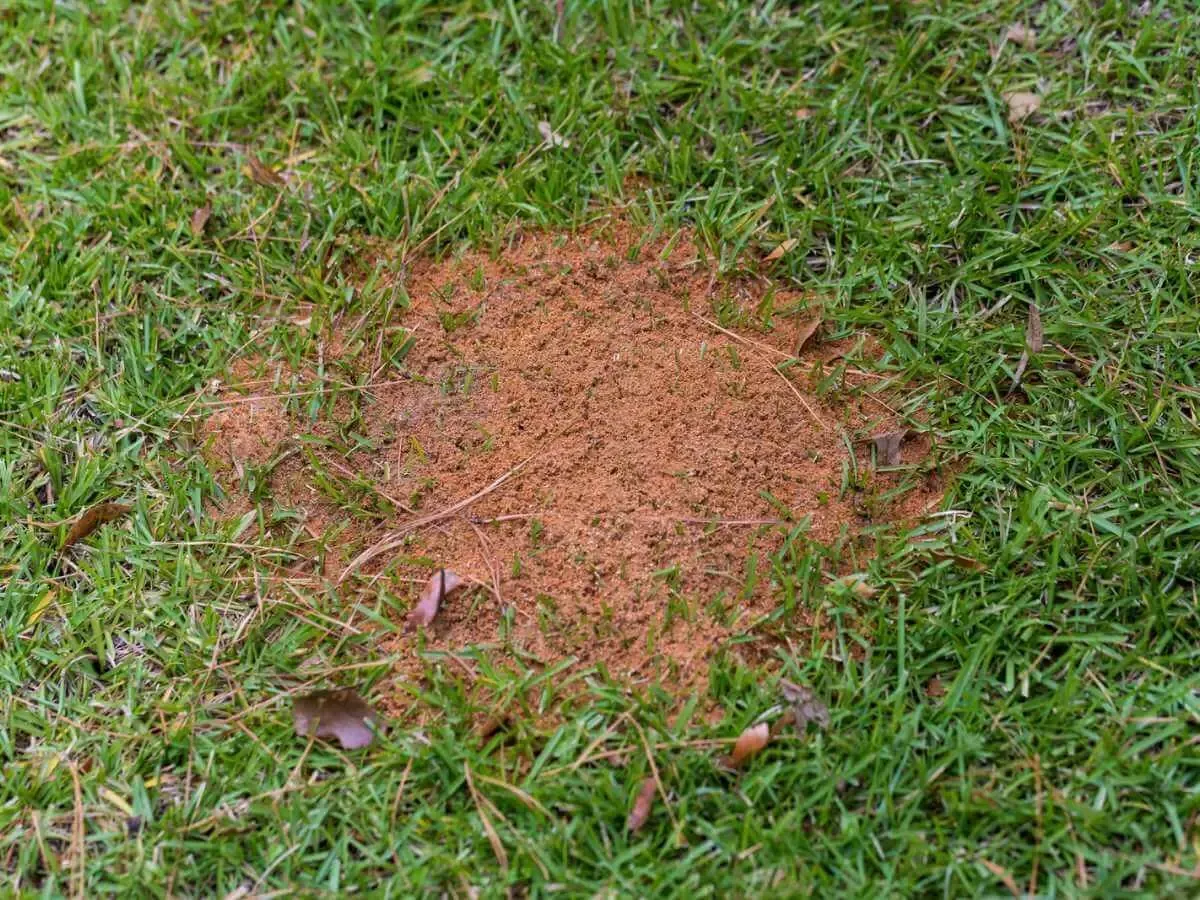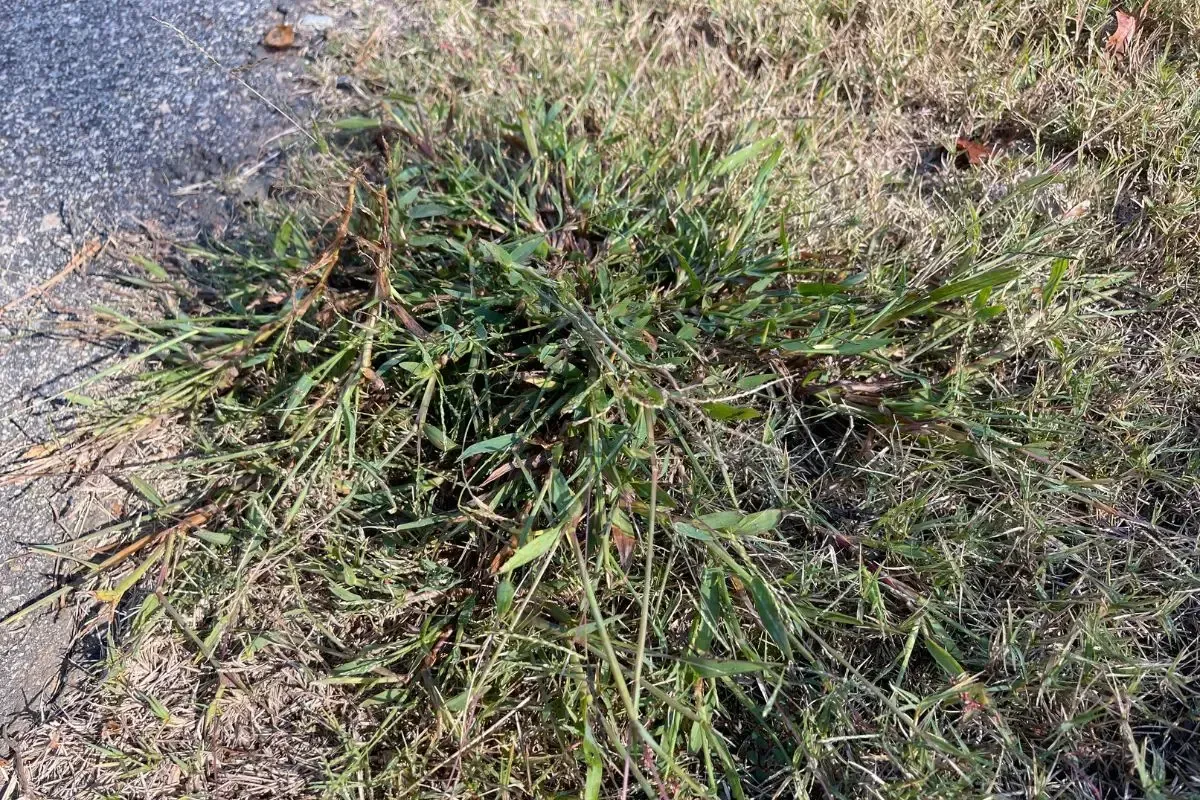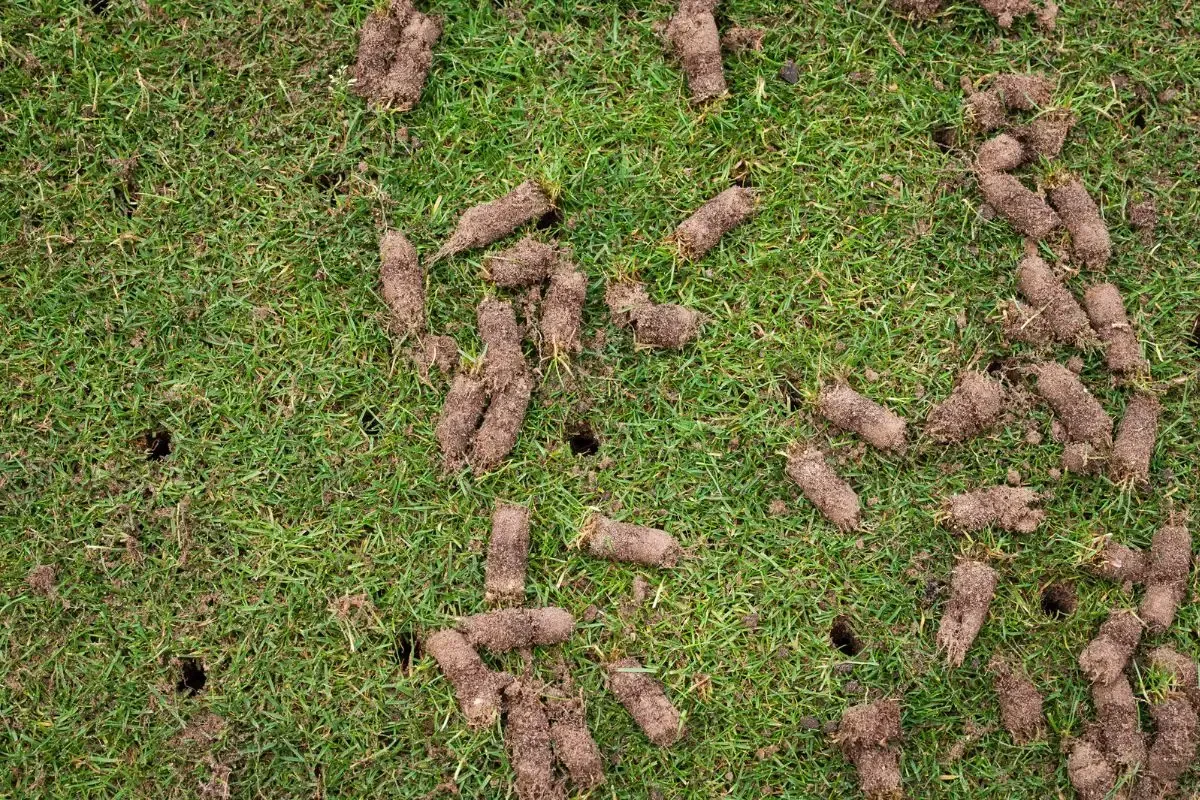How to Get Rid of Fire Ants Naturally
Learn how to naturally get rid of fire ants in Raleigh-Durham, NC with organic pest control methods.

Fire ants are not just a nuisance; they pose a serious threat to your lawn, pets, and even you. Just yesterday, our owner, Houston, was attacked by fire ants when moving a dead branch under which the ants had made a home. After some Benadryl and ice, he walked away with several welts on his back and was reminded of the risk to people with severe allergies.
Fire Ants Coordinate a Painful, Synchronized Attack
Fire ants are known for their aggressive behavior, particularly during an attack. When a fire ant mound is disturbed, the ants respond as a group. Initially, the ants use their mandibles to clamp onto the victim's skin. Once attached, they release a chemical signal called a pheromone, which prompts the rest of the colony to swarm the area and bite. This coordinated attack often feels like multiple stings happening at once because the ants will bite simultaneously after securing themselves with their mandibles. Then, they inject venom with their stingers, causing intense burning and itching, which is why they're called "fire ants." This process allows for a highly synchronized and painful assault.
Why Houston, who is allergic to bees and sensitive to ant bites, chose pest control out of all the careers out there is beyond me.
Fire Ants Are a Non-Native Species in Raleigh-Durham, NC
Fire ants are a non-native, invasive species in North Carolina. They were unintentionally introduced to the United States in the early 20th century, likely through cargo ships, and have since spread across the southern states. In North Carolina, fire ants thrive in the warm climate, quickly establishing colonies that can disrupt local ecosystems. Their aggressive nature and painful stings make them a significant problem for both humans and animals, as they outcompete native ant species and pose risks to agriculture and outdoor activities. Controlling their population has become an ongoing challenge for the state.
These invasive pests can quickly turn a relaxing day outside into a painful ordeal. If not managed, they can rapidly spread and form large mounds that disrupt your yard. While some homeowners may be tempted to reach for chemical solutions, organic, eco-friendly methods can control fire ants without harmful substances.
In this blog, we’ll look into how to use organic pest control methods and natural techniques to prevent fire ants from taking over.
Understanding Fire Ants and Their Behavior
Before tackling fire ants on your lawn, it’s helpful to understand their behavior. Fire ants are social insects that build large colonies, often underground. A single colony can house thousands of ants, including workers, soldiers, and a queen whose job is to reproduce and grow the population. What makes fire ants particularly problematic is their aggressive nature. When their mound is disturbed, they swarm quickly, biting and stinging anything they see as a threat.
Fire ants tend to build their mounds in open, sunny areas. This means they favor your lawn, garden beds, and sometimes even under the foundation of homes. Unfortunately, mowing your lawn or walking by a mound can trigger an aggressive attack.
The key to managing fire ants lies in controlling their population and preventing their spread in the first place.
Organic Methods for Fire Ant Control in Raleigh-Durham
When choosing organic pest control methods, aim to target fire ants while avoiding harm to beneficial insects, pets, and people. Below are some natural methods to help you eliminate fire ants and prevent them from taking over your lawn.
1. Boiling Water Treatment
A simple, yet effective way to kill fire ants is by pouring boiling water directly onto their mounds. However, it’s essential to be cautious when using this method to avoid burning surrounding grass or plants.
Boiling water works best on small to medium-sized mounds and may require multiple applications. While this method won’t prevent new colonies from forming, it’s a quick way to eliminate active mounds without chemicals.
2. Diatomaceous Earth
Diatomaceous earth (DE) is a a fine powder derived from fossilized remains of diatoms, tiny aquatic organisms. It’s a fantastic organic option for fire ant control because it damages the exoskeleton of ants, causing them to dehydrate and die.
DE is safe for humans and pets, making it an ideal solution for households with children or animals. To use diatomaceous earth for fire ant control:
- Spread DE generously around the fire ant mound and any visible trails.
- Apply DE on dry days to prevent it from becoming less effective due to moisture.
- Reapply after rainfall or heavy watering.
Over time, DE can reduce the population of fire ants by disrupting their movement and causing fatal dehydration.
3. Beneficial Nematodes
Beneficial nematodes are microscopic roundworms that prey on fire ants and other soil-dwelling pests. These tiny organisms are a popular organic pest control method because they target fire ants without harming beneficial insects, plants, or people. Once released into the soil, the nematodes invade the bodies of fire ants, releasing bacteria that kill the ants within a few days.
To use beneficial nematodes:
- Purchase nematodes from a garden supply store or online.
- Apply them to your lawn according to the product instructions, typically using a sprayer.
- Water the area after application to ensure the nematodes penetrate the soil.
Nematodes are a natural, sustainable solution that reduces fire ant populations over time, though you may need to reapply them periodically to maintain control.
4. Botanical Oils
Botanical oils, particularly citrus oil, peppermint oil, and rosemary oil, are another natural fire ant repellent. Citrus oil contains d-limonene, a compound toxic to fire ants. You can create your own citrus oil mixture or purchase ready-made products specifically designed for organic pest control.
To use citrus oil:
- Mix 2-3 tablespoons of citrus oil with 1 gallon of water.
- Pour the solution directly onto fire ant mounds, soaking the soil.
- Alternatively, spray the solution in areas where you’ve spotted fire ant activity.
Citrus oil will kill fire ants on contact and deter other colonies attempting to move into your yard.
5. Cayenne Pepper and Dish Soap Mixture
Another natural solution for fire ants involves using cayenne pepper and liquid dish soap. Cayenne pepper irritates ants and can destroy their nests when applied correctly, while dish soap helps break down the ants’ protective layers, making them more vulnerable.
To create this mixture:
- Mix 1 cup of cayenne pepper with 1 gallon of water.
- Add a few drops of dish soap to the mixture.
- Pour the solution directly onto fire ant mounds or spray it along trails.
- This solution is particularly effective for deterring fire ants from building new mounds in treated areas.
Preventing Fire Ants from Returning
Once you've taken steps to eliminate fire ants in your lawn, prevention is the next critical step to ensure they don’t return. By incorporating organic lawn care practices, you can create an environment less appealing to fire ants.
1. Maintain Healthy Soil
Healthy soil is the foundation of any successful lawn pest prevention strategy. Fire ants are less likely to invade well-maintained lawns with balanced soil, thriving plant life, and abundant organic matter. Regularly aerating your lawn, using compost, and adding organic fertilizers can help improve the quality of your soil, making it less attractive to fire ants.
Moreover, avoid over-watering, as fire ants often seek moist areas to build colonies. A balanced watering schedule that promotes deep root growth without oversaturating the soil will make your lawn less hospitable to fire ants. After a few particularly rainy days, we often see ant mounds popping up in our customers' yards.
2. Encourage Beneficial Insects
Not all insects are bad for your lawn—some of them, like predatory beetles and spiders, naturally prey on fire ants. Encouraging a diverse ecosystem in your yard by planting native flowers and avoiding chemical pesticides can create a healthy environment where beneficial insects thrive, helping to keep fire ant populations in check.
Consider adding plants like yarrow, fennel, and dill, which attract predatory insects. These helpful critters will help reduce the number of fire ants without any additional effort on your part.
3. Seal Entry Points
Fire ants can sometimes move from your lawn into your home in search of food and shelter. Seal any cracks or openings around windows, doors, and the foundation to prevent them from entering your house. You can also create a natural barrier by spreading diatomaceous earth or cayenne pepper around the perimeter of your home.
Why Organic Pest Control Matters
Opting for
organic methods over chemical treatments offers several benefits beyond fire ant control. Organic pest control methods help maintain the balance of your lawn’s ecosystem, protect pollinators and other beneficial insects, and prevent harmful chemicals from entering the environment. Additionally, these methods are safer for children, pets, and wildlife that frequent your yard.
While chemical fire ant treatments may provide a quick fix, they can have lasting negative effects on your soil, water supply, and your family's health. Organic approaches, on the other hand, prioritize sustainability and long-term health, creating a safer and more enjoyable outdoor space.
Knowing How To Get Rid Of Fire Ants Naturally
Dealing with fire ants in your lawn doesn’t have to mean resorting to harsh chemicals or harmful practices. Organic, non-toxic pest control treatments coupled with preventive measures like improving soil health and encouraging beneficial insects, you can keep fire ants at bay and enjoy your outdoor space without worry.
Organic pest control may take more time and effort, but it’s a safer, more sustainable approach that will help protect your lawn and the planet. Carolina Turf has an
organic fire ant control service in the Raleigh-Durham area we apply year-round. Whether you have a minor fire ant problem or are dealing with an infestation, we’ll help you take control naturally.
.











